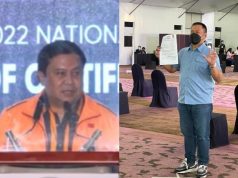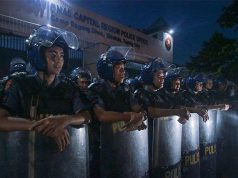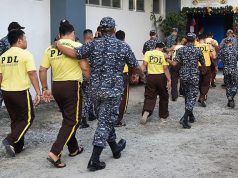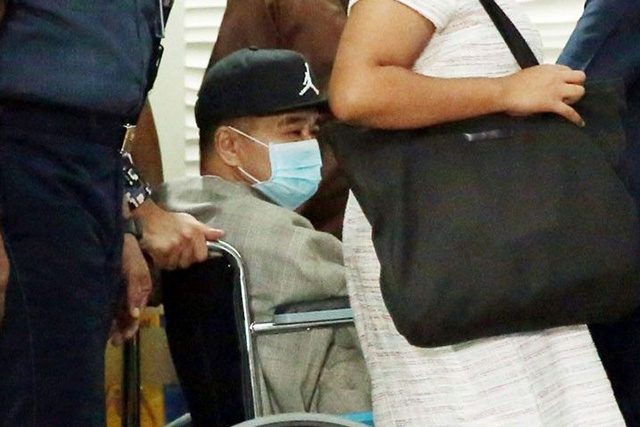
The issue for the need of an anti-political dynasty bill came into light as those principally accused in the decade-long case of Maguindanao massacre were found guilty beyond reasonable doubt.
The Quezon City Regional Trial Court has sentenced prominent Ampatuan members Datu Andal Ampatuan Jr. and his brother Zaldy Ampatuan to reclusion perpetua without parole for committing 57 counts of murder.
Twitter user @OhJooHun said that the Maguindanao massacre is a “reason” why such a bill is needed in the country, especially since the Ampatuans have a years-long stronghold over the Maguindanao province since the ’60s.
The tweet included the hashtag “MaguindanaoMassacreVerdict”, which is the top trending topic in Twitter Philippines as of this writing.
“The reason we need Anti Dynasty Law #MaguindanaoMassacre #MaguindanaoMassacreVerdict,” user @OhJooHun wrote.
The reason we need Anti Dynasty Law #MaguindanaoMassacre #MaguindanaoMassacreVerdict
— BaeSeHyun (@OhJooHun) December 19, 2019
The Maguindanao massacre is considered the worst election-related violence in recent history, as well as the world’s single deadliest attack against journalists and media workers.
On November 23, 2009, 58 individuals lost their lives. They included 32 journalists, 20 Mangudadatus including their lawyers and their supporters, and six passers-by.
All of them were on their way to file then-Buluan Vice Mayor Esmael “Toto” Mangudadatu’s certificate of candidacy for the Maguindanao’s gubernatorial position when they were ambushed and gunned down by heavily armed men.
Mangudadatu — now representative of Maguindanao’s second district — was seeking to end the 20-year political rule of the Ampatuans in Maguindanao at that time.
He was personally asked by the Ampatuans to drop his political bid twice — in a meeting with then-Defense Secretary Gilbert Teodoro and in a dinner with then-President Gloria Macapagal-Arroyo.
The Ampatuans, namely the now-deceased Andal Ampatuan Sr. and his son Andal Ampatuan Jr., were accused of masterminding and leading the massacre, respectively.
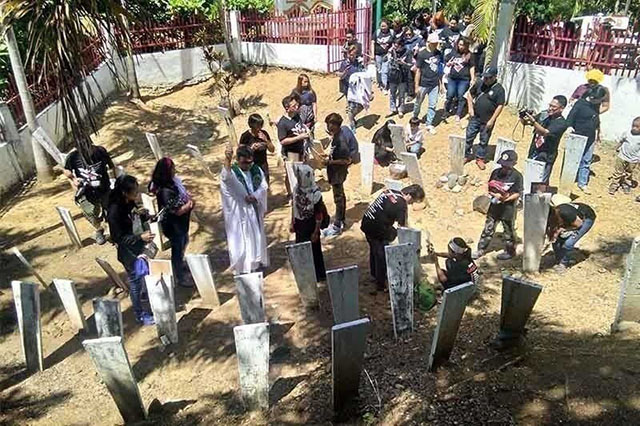
Murder charges were also filed against several Ampatuan clan members, including former Autonomous Region in Muslim Mindanao Governor Datu Zaldy “Puti” Ampatuan, incumbent Shariff Saydona mayor Datu Sajid Islam Ampatuan and former Sharrif Aguak mayor Datu Anwar Ampatuan Sr.
After a decade, prominent members of the Ampatuan clan were found guilty beyond reasonable doubt, including members of the police before.
The Ampatuans are considered one of the most powerful political families in Maguindanao since the ’60s.
They further established their hold in the province when their patriarch, Andal Sr., was appointed officer-in-charge of Shariff Aguak in 1986.
Ever since, several members have occupied government posts and forged alliances with powerful politicians like the Arroyos.
Dean Ronald Mendoza of the Ateneo School of Government has described the Ampatuans as the largest political dynasty in the country.
Anti-political dynasty bill
The anti-political dynasty bill seeks to prevent political dynasties by prohibiting a public official’s family members and select relatives from running and occupying government posts in the same area.
Several versions of the bill have already been filed into Congress throughout the years but it has never come into fruition.
As of 2019, at least two senators have filed bills titled “An Act Prohibiting the Establishment of Political Dynasties,” namely Senate Minority Leader Franklin Drilon and Senator Ping Lacson.
In their versions, the public official’s spouse or relative within the second civil degree of consanguinity or affinity would not be allowed to run in the same city or province as the former.
They are also not allowed to run in the same position after the incumbent official’s term.
The ban would cover the incumbent official’s parents, children, siblings, grandparents, grandchildren and in-laws, regardless of whether they are legitimate or not.
The 1987 Constitution of the Philippines does not allow political dynasties to flourish. This is explicitly stated in Article III Section 26 under State Policies, where it is said:
“The State shall guarantee equal access to opportunities for public service, and prohibit political dynasties as may be defined by law.”
As of now, the provision on political dynasties was left out in a bid to amend the Constitution by the Inter-Agency Task Force on Constitutional Reform.




